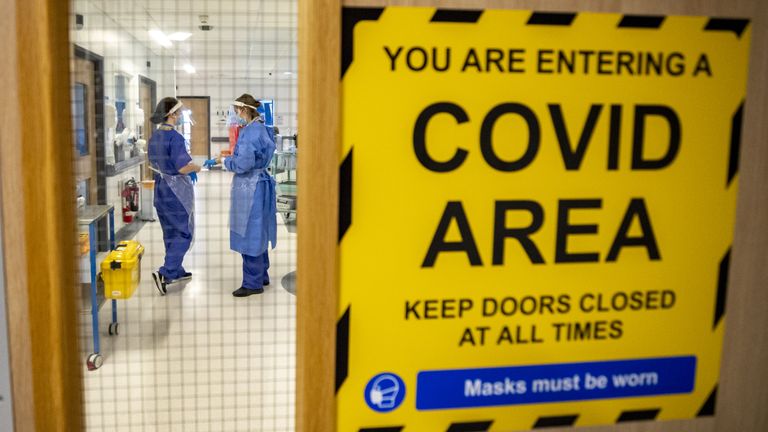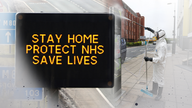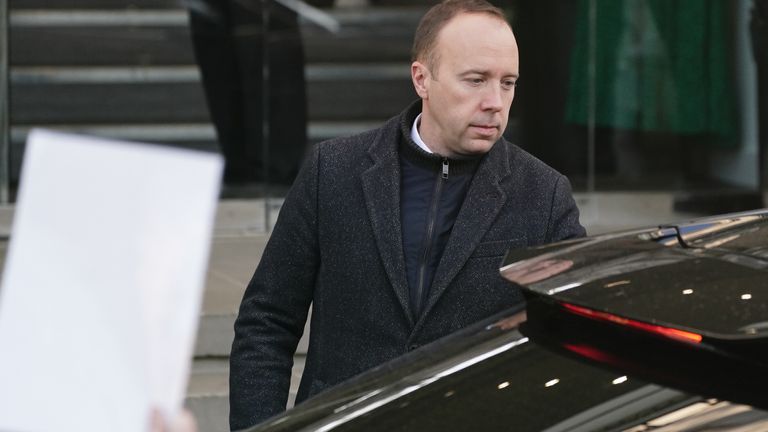Routine COVID tests for hospital patients discharged into care homes to be ended by government
During the initial stages of the pandemic, untested hospital patients were discharged into care homes, with many fearing it spread COVID to some of the country's most vulnerable.
Monday 25 March 2024 16:56, UK
The government will end routine COVID testing for hospital patients discharged into care homes from April 1.
Health minister Maria Caulfield confirmed the decision in a written statement on Monday and said the move could be taken due to continued high levels of vaccination among at-risk groups, combined with wider access to treatments and the reduced impact of outbreaks.
Ms Caulfield added the shift was "to align with the approach for other respiratory illnesses".
This includes the scrapping of lateral flow testing to manage outbreaks in higher-risk settings. However, free testing to determine the cause of specific outbreaks, when green lit by local health authorities, will remain in place.
But one care home group warned the move could have potentially "serious consequences".
Care England, a representative organisation for providers across the country, said they want testing to continue and warned of potentially "serious consequences".
Chief executive Professor Martin Green said: "People who live in care homes are often living with many health conditions and are susceptible to infectious diseases.
"It is for this reason that we would like to see testing continue when patients are being discharged from hospital.
"If we see an end to such testing, the risk of people coming from hospital with asymptomatic COVID and transmitting it to other residents could have serious consequences."
Read more from Sky News:
'Next pandemic is around the corner,' expert warns
Johnson like 'absent football manager' as pandemic hit, says Welsh leader
'Groundbreaking' lung cancer vaccine being developed
Dame Jenny Harries, Chief Executive of UK Health Security Agency said: "Thanks to protection from the combination of vaccination, natural immunity and effective treatments, COVID is now a relatively mild disease for most people.
"This allows testing programmes to be brought in line with the management of other respiratory illnesses such as flu, while still protecting those most at risk.
"While this is an important milestone for us in learning to live with COVID as with other respiratory illnesses, the virus hasn't gone away and can still cause severe illness for some.
"UKHSA will continue to work closely with the Department for Health and Social Care and with NHS England to closely monitor respiratory illness rates and characteristics through our critical science and surveillance programmes."
The policy of discharging untested hospital patients into care homes during the pandemic has come under fierce scrutiny since, and has been blamed for spreading the virus among some of the country's most vulnerable.
It was previously said that the government acted unlawfully by discharging possibly COVID-positive patients into care homes during the early stages of the pandemic.
Around 25,000 people were discharged from hospitals into care homes without it being known whether they had COVID from mid-March before the government introduced mandatory testing in mid-April 2020, according to a report from the National Audit office.






